Foreign Prayer (2017)
Gênero : História, Drama
Runtime : 1H 32M
Director : Akhtem Seitablaiev
Escritor : Mykola Rybalka
Sinopse
Nazi-occupied Crimea, 1944. A boy named Itzhak turns to Saide Arifova, a local Tatar Muslim woman, for help, explaining that he and a group of other Jewish orphans are hiding from the Nazis. Arifova faces a moral dilemma: should she try to help them or save herself by refusing? Despite the impending danger, she decides to protect the children by hiding them in plain sight, and disguising them as Tatars and adopting them into the local community.
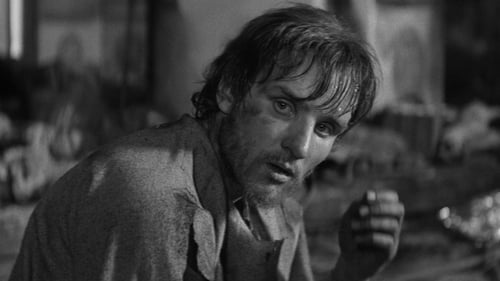
Um filme sobre os diversos episódios da vida do pintor de ícones Andrei Rublev (1360-1430), um dos maiores artistas russos da Idade Média, mas também um retrato da difícil vida do povo russo neste século. Entre os conflitos apresentados estão a rigidez da Igreja Ortodoxa Russa e o seu lugar na cultura russa, bem como a pobreza e as invasões tártaras. Após quatro anos de produção a exibição do filme seria proibida logo após seu lançamento, levando-o a ser exibido apenas em festivais de cinema estrangeiros.
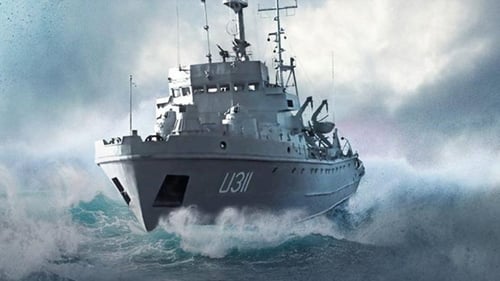
Baseado em uma história real. Em fevereiro de 2014, durante a ocupação russa na Península da Crimeia, o navio de guerra ucraniano U311 "Cherkasy" e resto da Marinha do país estão bloqueados no Lago Donuzlav, com o caminho para o mar fechado por uma cilada da frota russa. Sem perspectiva de vitória ou fuga, os navios começam a se render, mas o U311 "Cherkasy", última esperança de resistência ucraniana na Crimeia, decide permanecer no local e iniciar uma luta corajosa.
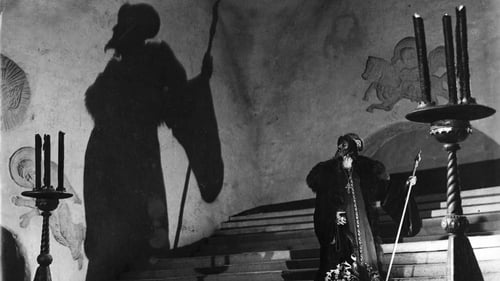
Durante a primeira parte do seu reinado, Ivan, o Terrível, enfrenta traição da aristocracia e até dos seus amigos mais próximos, à medida que procura unir o povo russo.
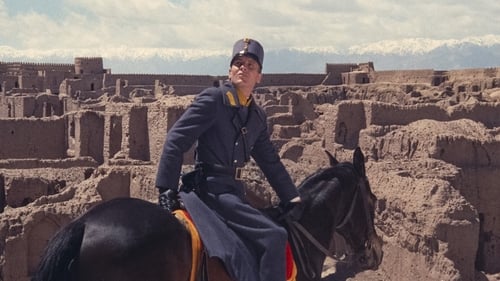
Lieutenant Giovanni Drogo is assigned to the old Bastiani border fortress where he expects an imminent attack by nomadic fearsome Tartars.

A practical joke ends up very wrong in Nigina Sayfullaevas curious youth drama. Two seventeen year old Moscow girls, Olya and Sasha, are visiting Olya's long lost father who lives in Crimea, when they decide to switch places and pretend to be the other person to the father. Little do they know that their joke comes with consequenses that will change their lives forever.
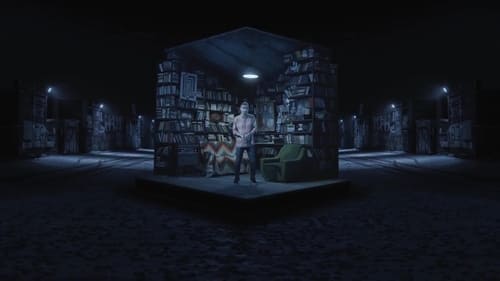
A theatrical documentary about Hrytsko Chubai, a genius of Ukrainian poetry, a connoisseur of literature, art and music and the brightest representative of Lviv underground culture of late 60s early 70s.

A Associação dos cineastas dos documentários Babylon'13 apresenta a primeira longa-metragem sobre a anexação da Criméia pela Rússia. As filmagens originais e as histórias não-ficcionais dos marinheiros, dos pilotos, dos pára-quedistas e dos fuzileiros navais sobre o confronto resistente aos invasores podem ajudar o público a encontrar a resposta à pergunta "Por que desistimos da Criméia?". Os Autores do filme olharam para eventos históricos na Criméia através do prisma do destino dos soldados ucranianos que não traem o juramento. "A Criméia, como era" - a história das mais altas qualidades humanas: honra, fidelidade, coragem.

A captain in the Czar's army encounters danger and romance while carrying a secret message across 19th-century Russia.

The film tells about the tragic date in the history of the Crimean Tatar people — May 18, 1944 — Stalin’s deportation of the Crimean Tatars. The plot of the film — a pilot, twice Hero of the Soviet Union, Amethan Sultan. In May, 1944, a year after liberation of Sevastopol Amethan goes on vacation to his native town Alupka. On May 18 his eyes witness begining of deportation of the Crimean Tatars.

Chain-smoking artists, poets and playwrights were among the colourful array of intellectuals living in the ‘Slovo House’ in 1920s Ukraine. The communist paradise was built under Stalin's approval, but it quickly became a prison. The brutal Soviet regime spied on the inhabitants, destroying their eccentric way of life and sealing their fate. This fascinating film explores the extraordinary story of the building and its residents.

At a popular vacation destination in Crimea every evening the entertainer Lyudmila Pashkova hosts "Where are you, talents?" - a friendly competition designed to amuse vacationers. Michael Gudkov, a vacationer from the northern Russian city of Murmansk, takes up the challenge performing his favorite song "My Female Sailor". In spite of a well-received performance the host did not award a victory to him. Feeling slighted Michael decides to compete every evening with his song until he gets his well-deserved prize becoming a favorite fixture of the local competition.

Documentary film about war crime — annexation of Crimea by the Russian Federation.

1971, Odessa Film Studio. The KGB studio curator orders a re-edit of just finished movie about the events of Ukraine’s 1920s "civil war" of a young director in line with the Party’s view on the historical events. This re-editing work is entrusted to a young female editor, which consequently realizes she must protect the director’s vision and the safe-guard the truth about her country under Soviet occupation.

One day a friend will betray you, and the enemy at the crucial moment will save lives.

The year 2011 marked the 70th anniversary of the deportations of June 14 1941, when 15 425 residents of Latvia (Latvians, Jews, Russians, Poles) were deported to Siberia. Among them there were 3 751 children aged up to 16. During the process men were separated from their families and sent to gulags, where many were sentenced to death, while others were imprisoned in labour camps. The facts of history and dry and few, but many of the victims and their children and grandchildren are still among us. During the summer of 2010, people who were deported to Siberia in 1941 as children joined their own children and a video production crew to travel back to the far North of Russia.

The children who were sent to Siberia in 1941 have not seen their fathers – in their memories they recollect: “My father was arrested, he was sent to Vyatlag camp. He died there in March, 1942. He was not convicted. Father was tried in the autumn of 1942, when he was already dead, Moscow Troika verdict: 10 years in prison and confiscation of property...”The railcar moves along overgrown rails. For 70 years, the twelve participants of the journey have wanted to go to the places from where their fathers did not return. Among the harsh nature the tension on their faces shows.

In 1944 Crimean Tatars has suffered a long road in exile. It was accompanied by famine, illness and loss. In the first years of exile, almost half of deported Crimean Tatars died. But those, who survived, dreamed of only one thing - to return to Crimea. The documentary 1944 tells about the tragedy of all Crimean Tatars through several separate life stories. They are cherished by each Crimean Tatar family and must be remembered by all generations to come.

Kharkiv, the 1930s. The heyday of Ukrainian art. Ambitious young poet Vladimir Akimov happily settles in at the new luxury "Slovo" House built specifically for artists. He comes from the provinces and works as a proof-reader in a printing press, and has never even dreamed of living under one roof with prominent Ukrainian writers and artists. He thinks his own poetry is genius, but nobody takes his literary efforts seriously, not to mention the occasional chuckles over his epigone poems. But fate smiles at him. The head of the political intelligence agency suggests that he become the author of a play written earlier. Akimov agrees, signing a non- disclosure note. The poet has no idea what price he will pay for this success. “‘Slovo’ House” is a story about a generation of Ukrainian artists persecuted by the totalitarian system, unfolding against the backdrop of one of the largest genocides of the 20th century: the Holodomor, which caused the death of almost 7 million people.


During the 12th Century a boy is born to a tribal chief. He is named Temujin, which means "blacksmith." Nine years later, his father is murdered by the Tartars After a long struggle, just when Temujin reclaims tribal chief status, the Merkit tribe kidnaps his wife. In order to fight against the Merkits, Temujin has to use his mother as a pawn in exchange for troops from ally tribes. Temujin manages to rescue his wife only to realise that she is pregnant with the enemy's child. Enduring tremendous anguish, Temujin throws himself into battle against the Tartars and slaughters the leader of the intruders. He eventually takes his wife back and accepts her child. Later on, he begins a campaign to unify all Mongolian tribes. By the age of 40, he is bestowed the title "Genghis Khan", which means "oceanic ruler".
















